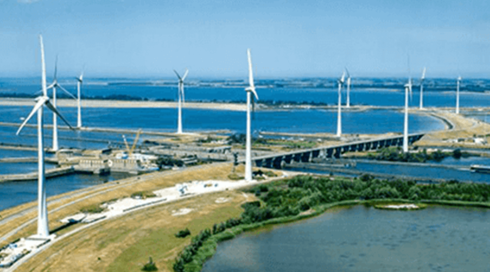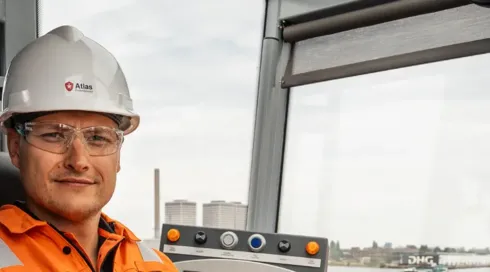3
At the frontier of Energy, Marine and Renewables. It is our slogan at Atlas Professionals and not just because it sounds good. It is our slogan because our professionals – our Heroes – work at the frontier of the industry. Day in, day out they help our clients bring innovations to life. But what is happening at the next frontier? In this new blog series, Atlas’ Market Analyst Gurpreet Kaur will be covering trends in the Energy Transition. First up: Marine Energy.
Marine Energy involves harnessing the power of the ocean to generate energy. Technologies such as tidal and wave devices have been around for some time and has recently gained momentum in the search for additional renewable sources to support the energy transition.
The International Energy Association reports that “electricity generation from marine technologies increased an estimated 13% in 2019, which is significantly above the levels of the previous three years”, and “needs to be deployed even more rapidly to get on track with the sustainable development goals, which requires much higher annual growth of 23% through 2030.”
There is significant potential which is seen through the array of available benefits, such as:
- Sustainability – a clean resource
- Predictability and reliability – the ocean is always moving
- Adaptability – can be used to power communities and provide coastal protection
- Efficiency – high energy density making use of space and wasting little in the process
- No visual impact
There are also challenges presented by the suitability of the environment, as well as a need for further policy support and funding. This will enable research and development from demonstrator to commercial projects, as Marine Energy is expensive, and economies of scale have not been reached yet.
Let’s take a deeper look at the types of devices being explored at the moment.
Tidal
Involves generating energy using the Tidal Range which is derived from the gravitational pull from the Moon and spin of Earth, and Tidal Currents where water rises and falls.
These devices tend to look like underwater turbines (like those we see on wind farms), with an average life span of around 25 years.
Nova Innovation installed the world’s first offshore tidal energy array in Scotland which has been powering homes and businesses for over five years, has worked in multiple countries such as deployed 15 turbines in Canada. Whilst most recently securing a £1.2m investment from the Welsh Government for its Enlli project – the world’s first (yes, another record) ‘Blue Energy’ island.
Simec Atlantis owns the largest consented tidal stream project in Europe, MeyGen, and has been awarded offshore lease areas from the UK Crown Estate. The company is progressing internationally as its prototype AR500 tidal generator is being deployed in Japan’s Naru Strait.
Wave
Consists of generating energy from wind passing over the surface of the ocean.
Bombora is designing ‘mWave’ models for deployment in Wales and Spain, whilst looking to identify opportunities in Japan and neighbouring regions.
Country Spotlight
The UK is one of the key countries leading advances in Marine Energy.
To understand the potential economic impact of this industry on a country, consider the Offshore Renewable Energy (ORE) Catapult’s study that finds the following gross value added and job benefits:
- “The tidal industry could generate a net cumulative benefit to the UK of £1,400m, including exports, and support 4,000 jobs by 2030.
- Assuming a 10-year lag behind tidal, wave energy could add a net positive contribution to the UK economy of £4,000m and support 8,100 jobs by 2040.
- 50-60% of the economic benefit is expected to be created in coastal areas with greater need for economic regeneration”.
The study explains that skills can be leveraged to support the industry, which provides an insight into the types of jobs available. Think about leveraging the UK’s existing skills “in subsea engineering, offshore foundation design and manufacture and marine operations”. Next to this, it becomes clear the workforce can be drawn from similar industries, “primarily from existing UK industries where there is strong absorptive capacity, especially offshore wind, oil & gas, steel, and maritime".
Time will tell how the Marine Energy industry progresses, for now it is an interesting area to keep an eye on.
Sources: Nova Innovation, Simec Atlantis, Bombora
.png)
.png)


